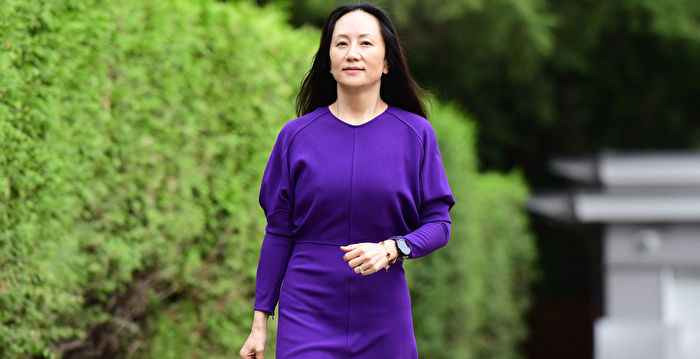[EpochTimesAugust192021](Epoch Times reporter Li Yan comprehensive report) Huawei’s chief financial officer Meng Wanzhou’s judicial hearing on the extradition case ended on Wednesday (August 18). Heather Holmes, Deputy Chief Justice of British Columbia, Canada, said she will announce the date of the ruling on October 21.
Meng Wanzhou, 49, was arrested at Vancouver International Airport in December 2018. The arrest warrant issued by the United States accuses her of misleading HSBC in Huawei’s Iran business dealings, which exposes the bank to the risk of violating the relevant provisions of the United States sanctions against Iran, thus constituting bank fraud. Meng Wanzhou denied the allegations.
Normally, an extradition hearing is enough for one day, but Meng Wanzhou’s hearing has been going on for several years. Meng Wanzhou is currently waiting for Holmes’ final ruling on her, that is, whether she should be extradited to the United States for trial.
Reuters reported that the next course of Meng Wanzhou’s case may lead to several outcomes.
What the judge is considering
Holmes’ first decision is whether the Meng Wanzhou case meets the double criminality standard, that is, whether the charges she is charged with will be considered illegal in Canada. Holmes ruled in May 2020 that, if confirmed, the allegations made by the US government constitute a crime in Canada, and the case continues.
In the latest and final round of hearings, Meng Wanzhou’s defense team claimed that the case involved “abuse of procedures” and was sufficient to suspend her extradition. They made four points:
1) Former US President Donald Trump (Trump) will politicize the case against Meng Wanzhou, which means that she will not receive a fair trial in the United States.
2) The Canadian and U.S. authorities acted wrongly during the initial arrest of Meng Wanzhou.
3) The United States misled Canada in providing evidence against Meng Wanzhou.
Canadian prosecutors said that the evidence was either insufficient to stop extradition, or it was a matter for the US courts.
Therefore, Holmes is now deciding whether the “abuse of procedures” alleged by Meng Wanzhou’s defense team is sufficient to suspend her extradition.
What kind of judgment can the judge make?
The standard for extradition is lower than the standard in trial. As a Canadian judge, Holmes is not qualified to decide whether this person is guilty or not guilty according to the law of another country, so she only needs to decide whether the evidence against Meng Wanzhou allows him to be tried in Canada.
If Holmes decides to support extradition, the case will be transferred to the Canadian Attorney General for final approval.
If she decides to suspend extradition, the process may stop here and Meng Wanzhou is expected to be released. It is rare for the Canadian government to appeal a court’s decision against extradition.
Soon after Meng Wanzhou was arrested, the CCP detained two Canadians in China, and this month sentenced one of them to 11 years in prison for espionage, a move widely regarded as retaliation.
The judge ruled to support extradition. What’s next?
If Judge Holmes supports the extradition of Meng Wanzhou, the Canadian Attorney General will finally decide whether to extradite Huawei’s chief financial officer to the United States.
Meng Wanzhou can either appeal the judge’s decision or request a judicial review of the final decision of the Minister of Justice. Such an appeal may take several years to pass the court, and may eventually enter the Supreme Court of Canada. During this period, she can promote a reassessment of her bail conditions.
Her current bail conditions allow her to leave the residence under supervision, but must stay at home at night.
On January 12, Meng Wanzhou’s team asked the court to relax the previously set bail conditions and allow Meng Wanzhou to leave home without personnel from a private security company to reduce the risk of contracting the Chinese Communist virus (Wuhan pneumonia). The judge believed that if the supervision of Meng Wanzhou were relaxed, she might leave the country, and therefore rejected the request.
Editor in charge: Lin Yan #
.
